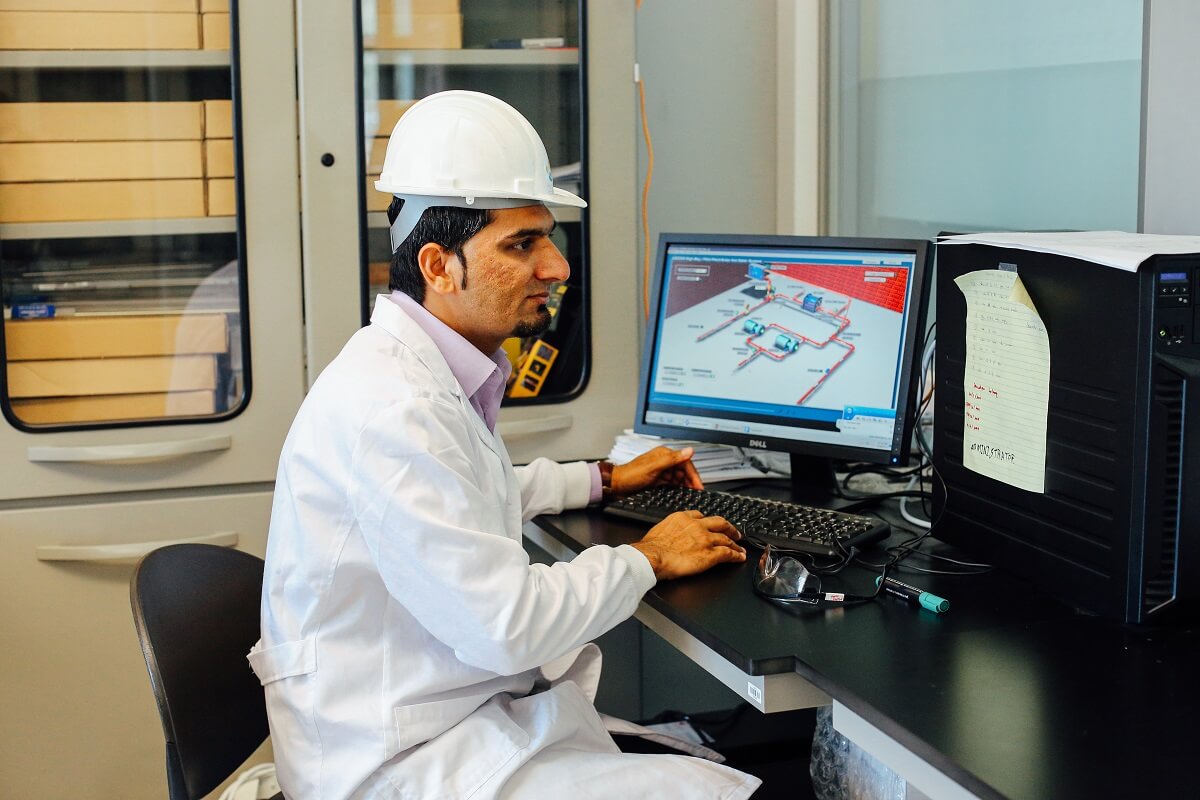Research scientist Muhammad Wakil Shahzad wins 'best presenter’ award

Dr. Muhammad Wakil Shahzad, a research scientist in the KAUST Water Desalination and Reuse Center, recently won a 'best presenter' award at the 2019 Global Summit and Expo on Power & Energy Engineering in Dubai. File photo.
By David Murphy, KAUST News
Muhammad Wakil Shahzad, a research scientist in the KAUST Water Desalination and Reuse Center (WDRC) under the supervision of KAUST Professor Kim Choon Ng, recently won a "best presenter" award at the 2019 Global Summit and Expo on Power & Energy Engineering (Power-Energy Summit 2019). Held in Dubai in February, the Power-Energy Summit served as a showcase for the latest trends, research, innovations and developments in power and energy engineering.
Shahzad received the award as a recognition of his ongoing innovative research regarding water desalination. His winning presentation—titled "Water-Energy-Environment Nexus: Fallacy of Desalination Processes Comparison"—spoke to the concerns of the desalination industry in regards to the current inadequate approach to the energy efficiency of diverse seawater desalination processes.
"To receive this award from energy and water community—which I admire so much—makes me totally happy and grateful," stated Shahzad.
"Winning the best presentation award not only endorsed my presenting skills but also proved our research work at international level. As a researcher, winning...awards [is] very important, and it shows that people understand your work and they believe in your research," he added. "Winning people's confidence who work in the same area as you [do] is the main achievement in research, I think."

KAUST research scientist Muhammad Wakil Shahzad works on his research in the University's Water Desalination and Reuse Center. File photo.
Continued impact on a global level
Shahzad's research interests in the WDRC focus on creating innovative cooling processes and the hybridization and performance improvement of thermally driven desalination processes.
On a daily basis, he and his WDRC colleagues continue to develop and optimize methods to improve water desalination processes, with the goal of providing potable water in drought-stricken areas worldwide.
KAUST WDRC researchers are also busy developing water reclamation and reuse strategies and processes to sustain present scarce water resources in the Kingdom and the Gulf region.
Shahzad stated he feels that his latest accolade is a testament to the continued impact of the WDRC.
"[The] award is another recognition of our most innovative desalination cycle research at an international level," he said. "I believe that our KAUST WDRC-designed innovative cycle will be a game changer in the desalination industry."

